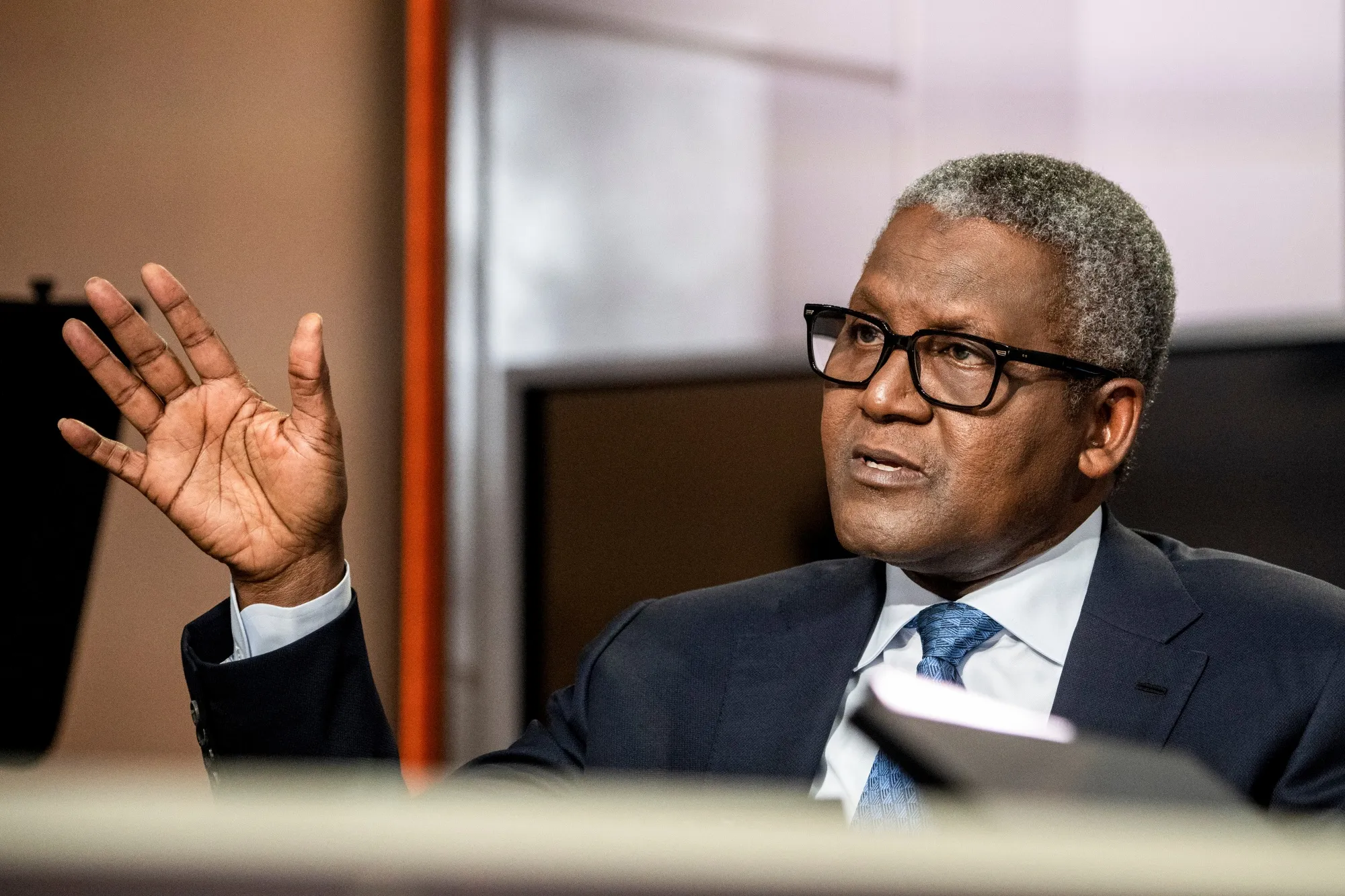Sports
A reality where Aliko Dangote had bought Arsenal

Aliko Dangote, Africa’s richest man and the chairman of the Dangote Group, has made his mark through strategic investments and a keen understanding of market dynamics.
Known for his successful ventures in cement, sugar, and oil, Dangote’s business acumen raises intriguing questions about how he would have managed a prestigious football club like Arsenal. With a rich history and a dedicated fanbase, Arsenal presents a unique case study in potential success under Dangote’s leadership.
Read More:
“Why I regret not buying Arsenal” — Dangote
Arsenal’s Gabriel sends chilling message to Haaland
A Strategic Business Approach
Dangote’s business model emphasizes efficiency, scalability, and a strong focus on core competencies. If he had taken the helm at Arsenal, he would likely have implemented a rigorous assessment of the club’s operations, focusing on maximizing revenues while minimizing costs. This would involve:
Investment in Infrastructure:
Just as Dangote invested in state-of-the-art facilities for his factories, he would likely prioritize improving the Emirates Stadium and the club’s training facilities. Enhanced infrastructure not only boosts player performance but also improves the matchday experience, leading to increased ticket sales and fan engagement.
Talent Development:
Dangote has consistently invested in human capital, believing that skilled teams drive success. He would likely have prioritized the club’s youth academy, investing in scouting and development programs to nurture homegrown talent. This strategy could have mirrored the successful models employed by clubs like FC Barcelona and Manchester United, potentially yielding a generation of top-tier players for Arsenal.
Commercial Expansion:
Under Dangote’s leadership, Arsenal would likely have seen a significant increase in commercial partnerships. His experience in negotiating lucrative contracts in the business world could translate into better sponsorship deals and merchandise sales, effectively increasing the club’s revenue streams.
Fostering a Winning Culture
One of the most notable aspects of Dangote’s business strategy is his commitment to fostering a winning culture. He emphasizes performance metrics and accountability within his companies. If applied to Arsenal, this would likely manifest in:
Data-Driven Decision Making:
With a keen interest in analytics, Dangote would likely adopt data-driven approaches to player recruitment, game strategy, and overall team performance. This analytical approach could help the club identify undervalued players and optimize game tactics, leading to improved results on the pitch.
Emphasis on Performance and Discipline:
Dangote’s corporate ethos revolves around discipline and high standards. He would likely instill a strong work ethic among players and coaching staff, promoting a culture of accountability that could foster greater team cohesion and performance consistency.
Long-Term Vision:
Unlike some football club owners focused on short-term gains, Dangote’s long-term investment perspective could allow for sustained growth and success. By prioritizing strategic planning over immediate results, he could cultivate a winning mentality that aligns with Arsenal’s storied legacy.
The Challenges Dangote may have faced
While the prospects of Dangote’s management are enticing, several challenges would need to be addressed:
Football Dynamics:
The football industry operates on unique dynamics, often influenced by emotions, fan loyalty, and media scrutiny. Dangote’s business principles, while effective in the corporate world, might face challenges in navigating the high-stakes, emotionally charged atmosphere of football.
Transfer Market Volatility:
Football transfers are often unpredictable and can be influenced by various factors, including player behavior, market trends, and club negotiations. Even with Dangote’s negotiation skills, acquiring top talent in a competitive market would pose significant challenges.
Cultural Integration:
Transitioning from a business mogul to a football club owner requires an understanding of the sport’s culture and its passionate fanbase. Dangote would need to ensure that his vision aligns with the expectations of Arsenal supporters, who hold deep emotional ties to the club.
Could Aliko Dangote have built a Different Arsenal?
Had Aliko Dangote purchased Arsenal, the club might have witnessed a different trajectory—one characterized by increased investment in youth development, enhanced commercial success, and a rigorous, performance-driven culture. While it’s impossible to predict exact outcomes, his successful business practices could have transformed Arsenal into a formidable force in both English and European football.
However, success in football often hinges on factors beyond business acumen, including team dynamics, luck, and timing. Ultimately, while Dangote’s leadership could have brought significant improvements, the unpredictable nature of the sport would always present challenges. Arsenal fans can only speculate on what might have been—perhaps a brighter future in football could have awaited under Dangote’s stewardship.
One existing doubt of Dangote’s stewardship of Arsenal
For every football fan, the weight of a club’s ownership lies in the pedigree of the players they can attract to the club or are ready to go all out for. With Aliko Dangote’s stewardship of the club, especially when starting out as a new owner, the Nigerian billionaire would have faced hurdles trying to poach big name players into the club and paying them humongous wages at the time, like Roman Abramovich did.
That’s not ruling out the potential of Aliko Dangote and Arsenal making big name signings later on, but in the early stages, this could have been a serious challenge for the Gunners especially under an untested ownership.